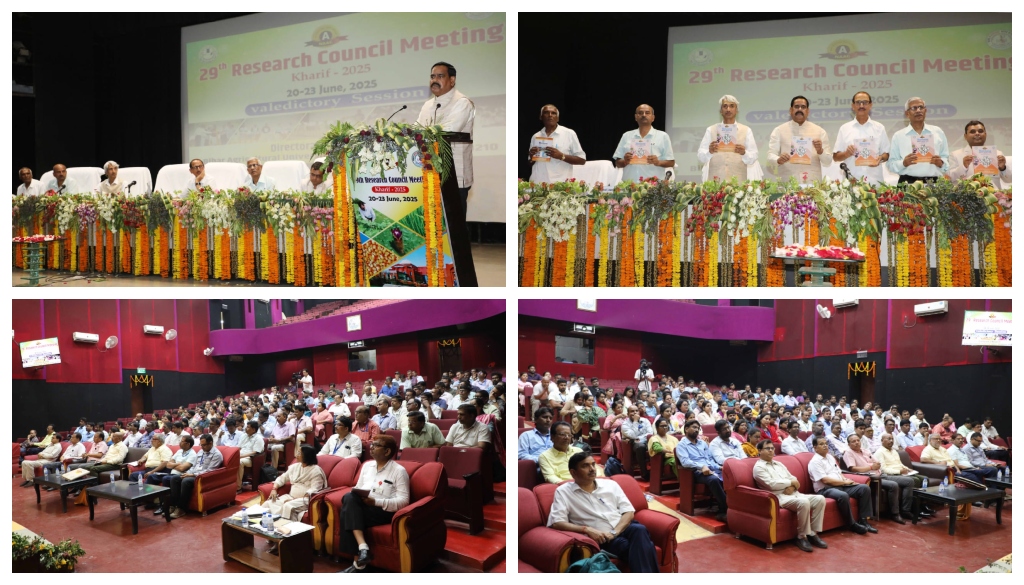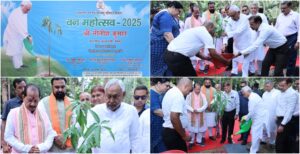
Sabour: Bihar Agricultural University (BAU), Sabour wrapped up its four-day 29th Research Council (Kharif-2025) on Monday, highlighting the urgent need to realign agricultural research with the challenges of food and nutrition security. The event culminated with a presidential address by Vice Chancellor D R Singh, who described the issue as “the biggest challenge of the time.”
In his concluding remarks, D R Singh announced the university’s plans to organise an international conference on nutrition and launch a mega project focused on food and nutrition, involving all agricultural colleges and Krishi Vigyan Kendras (KVKs) under BAU. He stressed the importance of a coordinated approach to ensure food security in the face of climate change and population growth.
Over the four days, 192 research projects were technically evaluated. Notably, four new varieties of paddy—high-yielding and climate-resilient—were released, promising farmers improved yields, better grain quality, and enhanced resistance to diseases.
Director of Research, Anil Kumar Singh, presented the council’s thematic framework, underlining that BAU’s research agenda is driven by five key departments: Crop Improvement, Natural Resources Management, Crop Protection, Social Sciences, and Product Development and Marketing.
Anil emphasised that through these thematic areas, the university is fostering multi-dimensional and farmer-focused research, aimed at making Bihar’s agriculture more scientific, sustainable, and market-responsive. He called on scientists to bridge the gap between research and real-world application by adopting field-oriented strategies.
He further noted that the university’s ongoing research tackles pressing issues including agricultural diversification, water and soil conservation, value addition, organic farming, entrepreneurship development, and technology transfer—key pillars for transforming Bihar’s agriculture into a self-reliant and globally recognised sector.
The Vice Chancellor extended congratulations to all participating scientists, department heads, KVK representatives, and technical officers, praising their active contribution. He expressed confidence that these collaborative research efforts would lend new direction and momentum to agricultural innovation in the state.





